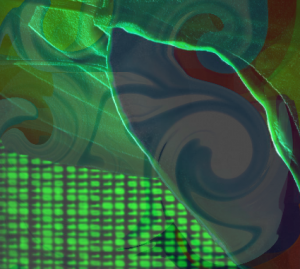
Oven sensationalized by popular media, this is a misunderstood reach region of the digital world we now live in. while portion of the dark web is engaged in illicit activities, there is often more to the story than what meets the eye. For instance those who do not have the freedom of speech many enjoy in the first world use the dark web as a repository for sharing information about practices that violate humanitarian guidelines upheld by most countries in the free world.
The Dark Web is a dangerous environment for unwary users because it is home to numerous illegal activities, including drug trafficking, money laundering, and many others. Engaging with Dark Web links can lead you into a world where fraud or other positive experiences are possible, so it’s important to be aware of the risks and take strong security precautions before using the Dark Web.
How to Stay Safe on the Dark Web.
Take into account doing the following to lessen your chance of being exposed to the dangers of the Dark Web:
To protect your data and mask your IP address, use a Virtual Private Network (VPN) that doesn’t keep logs or reveal your IP address. Your ISP will be able to see that you connected to a VPN, but they won’t know what you did once you were connected.
Use the Tor browser, which was created with the goal of protecting users while they browse the Dark Web.
Avoid using the Dark Web to access confidential or delicate data.
Always exercise caution when clicking on links or visiting websites that seem to offer either illegal or unbelievable promises.
The advantages of the darknet
For those in the know, the Dark Web, which is part of the deep web is more than just a haven for criminals.¹ It offers accessibility to information and knowledge that is otherwise off-limits, privacy when needed, safety for journalists, activists, and whistleblowers, as well as a platform for free expression. However, it appears that this message has not gotten out to the general public, and as a result, the majority of people are oblivious to the positive applications of the dark web.
Safe Internet Use on the Dark Web
It can be difficult to access the Dark Web, especially for novice users. To maximize the potential advantages while lowering the risks, it is essential to find reliable Dark Web links. In order to accomplish this, think about looking for reliable resources like forums and user-recommended websites, looking for links that have been verified or approved by others, and avoiding links that seem too good to be true or are provided for free. An excellent place to start is our website, which has an updated list of active Dark web URLs for 2023.
Dark Web FAQ
Accessing the Dark Web–is it prohibited?
A: Accessing the Dark Web is not a criminal offense, despite the fact that some activities on it might be prohibited. Accessing Dark Web sites can still be risky, though.
Is it possible to access the Dark Web using a standard web browser?
A: Specialized browsers like the Tor Browser must be used to access the Dark Web; standard web browsers do not support this.
Does only illegal activity take place on the Dark Web?
A: The Dark Web, though notorious for being linked to illegal activity, also provides a wealth of advantages for those who know where to look, including private information, anonymity, and freedom of speech.
The final verdict
A dangerous and lucrative area of the Internet, the Dark Web is a maze-like, enigmatic section. Understanding the opportunities and risks it presents as well as taking the necessary precautions to keep oneself safe while navigating its uncharted waters are essential if one is to make the most of this hidden arena. You can safely explore the Dark Web and take advantage of its benefits whether you are an experienced Internet user or are just getting started by following the rules and security precautions described in this guide. Don’t do anything that might endanger the good life you lead; just be cautious.
Sources:
Islam, R., Ozkaya, E. (2019). Inside the Dark Web. United Kingdom: CRC Press, p. 9.


 The dark web is a place where people can buy and sell private information, like data from breached companies. With so many cases happening every day, we need to take our cybersecurity more seriously.
The dark web is a place where people can buy and sell private information, like data from breached companies. With so many cases happening every day, we need to take our cybersecurity more seriously.
 In an age where our every move is tracked online, it’s more important than ever to value our privacy. Whether we’re browsing the internet, trading crypto, shopping online, or using social media, we are constantly leaving digital footprints that can be followed back to us.
In an age where our every move is tracked online, it’s more important than ever to value our privacy. Whether we’re browsing the internet, trading crypto, shopping online, or using social media, we are constantly leaving digital footprints that can be followed back to us.